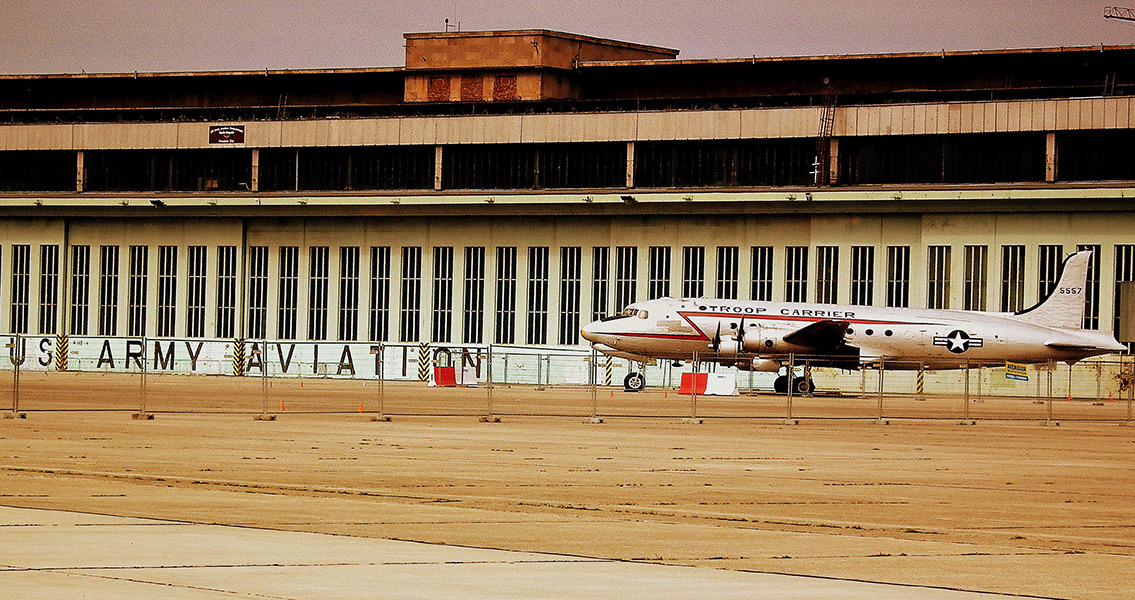<![CDATA[On 12th May, 1949, the 318 day blockade of West Berlin came to an end. A major flash point in the early stages of the Cold War, the Soviet blockade signaled the fall of the Iron Curtain between East and West Europe. The origins of the blockade came in the immediate aftermath of the Allied victory over Nazi Germany in the Second World War. The major allied powers: Britain, France, the Soviet Union and the United States, had agreed before Germany's surrender that they would divide the country between them and take responsibility for administrating their respective sections. Likewise, Berlin was also divided between the four Allied Countries (despite being located within the Soviet section.) The Allied Control Council, a provisional government with representatives from the four Allied states, was installed in Berlin and tasked with controlling and rebuilding the city. Discussions had been ongoing between the four Allied powers on the future of Germany but broke down in 1947, following Soviet accusations that the other three powers were violating the terms of the Potsdam Conference; which had laid out a clear four way commitment to reconstruct Germany on a democratic basis. On 20th March, 1948, the Soviet representatives withdrew from the Allied Control Council. Ten days later, Soviet troops on the East German border began delaying western troop trains bound for Berlin. On 9th April, 1948, the Soviet Union ordered all Western personnel maintaining communications equipment to leave the Soviet controlled zone of Berlin. In June, with tensions growing, and the danger of Berlin becoming isolated escalating, the three western Allies agreed to work together in establishing a new, independent West Germany. On 20th June, a new Deutsch mark currency was introduced in West Germany and West Berlin by the Western powers. The Soviet Union viewed this as an attempt to undermine the East German currency, and on 24th June initiated a blockade of all rail, road and water communications between Berlin and the West. The intention was clear: West Berlin had become an island in the Soviet section of Germany, by starving it of food, fuel and other vital necessities, the Soviet Union hoped to force it to join the Eastern bloc. For the Western Allies, Berlin became hugely significant, with the events occurring at a pivotal time in the Cold War. Aggressive expansion had seen the Soviet Union swiftly spread over much of Eastern Europe. If Berlin had joined the Soviet Union, the chances of successfully establishing West Germany would have been undermined, meaning the very real possibility of the whole of Germany being absorbed into the Soviet Union. Unwilling to risk a direct military confrontation, Britain, the United States and France set about organising the largest airlift in history, using aircraft to drop supplies to Berlin's Templehof airport. Over the next fourteen months, 278,288 relief missions were flown to Berlin, dropping off vital supplies such as coal and food, but also exporting products from Berlin's manufacturing industry to the West. The Allies also implemented trade embargoes on East Germany and the Soviet Bloc in response to the blockade, highlighting the extent to which relations between East and West had deteriorated. Soviet forces began to arrive in East Berlin and the surrounding area, but no efforts were made to disrupt the airlift. At the height of the airlift to Berlin, on average, a plane landed at Templehof airport every three minutes. By 12th May, 1949, 1.5 million tons of supplies had been delivered to the airport. The Soviet Union ultimately gave up on the blockade, and British and American convoys were allowed to drive through Soviet Germany to make deliveries to West Berlin. Shortly after, the Federal Republic of Germany was officially declared in the West of the country, and the German Democratic Republic in the Soviet administered East. The blockade on Berlin had been lifted, and the Soviet expansion westward halted, but the division of an 'East and West Europe' was now firmly entrenched, and would remain so for another four decades. Image courtesy of Wikimedia Commons user: calflier001]]>
The End of the Berlin Blockade
